Welcome to our blog where we explore the benefits and applications of high-quality organic nitrogen fertilizer for enhancing plant growth. As more gardeners and agricultural enthusiasts turn towards sustainable and eco-friendly solutions, understanding the role of organic nitrogen fertilizer has become essential. In this article, we’ll delve into what makes organic nitrogen fertilizer an indispensable asset for your garden, discuss its advantages over synthetic alternatives, and offer practical tips on how to incorporate it effectively into your soil management practices. Whether you’re a seasoned gardener or just starting out, our insights aim to help you achieve lush, vibrant, and healthy plants.
What is Organic Nitrogen Fertilizer?
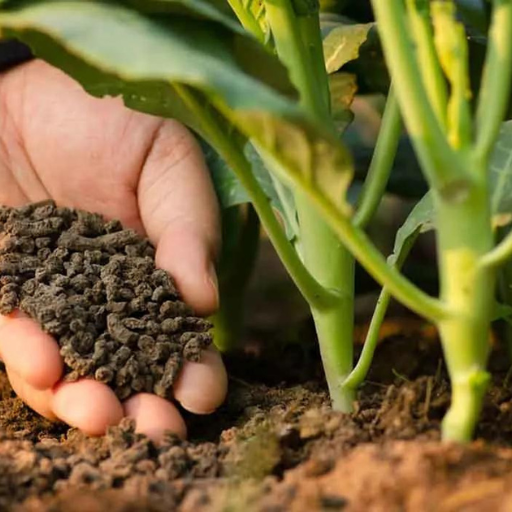
Understanding Natural Nitrogen
Natural nitrogen fertilizer comes from sources in the environment like manure, compost, plant residues and other organic matter. While synthetic fertilizers often have their nutrients chemically formulated, organic nitrogen ones gradually break down in the soil over time to improve its health and fertility. This ensures that plants are slowly given enough nitrogen needed for their growth and development. Additionally, these fertilizers positively affect soil structure by improving it, increasing microbial activity as well as reduce nutrient runoff making them a good choice for sustainability.
Benefits of Organic Fertilizers
- Improved Soil Health: enhancement of soil structure through organic fertilizers offers water and nutrient retention capacities leading to robust plant growth with time.
- Eco-Friendly: being derived from natural sources minimizes the potential for chemical runoffs into waterways thus reducing pollution. They are therefore more sustainable towards maintaining ecosystems and protecting wildlife.
- Long-Lasting Nutrient Release: On the other hand, organic fertilizers decompose gradually instead of causing sudden blast of nutrients like synthetic ones. Thus a gradual release of these elements ensures that plants receive consistent supply of vital compounds hence helping prevent over-fertilization while supporting constant growth process.
- Increased Microbial Activity: These substances increases microbial diversity within the soil which in turn creates a healthier ecosystem. Consequently, it helps in breaking down dead plants providing food for the next generation as well as preventing certain diseases.
Incorporating organic nitrogen fertilizers into your soil management plan offers numerous benefits that support sustainable gardening and farming practices thereby enhancing both plant growth and environmental health.
Organic Nitrogen Source Types
- Compost: Plant material that has been composted as well as kitchen scraps make excellent sources of nitrogen. The resultant compost makes use of waste matter to return essential nutrients back into the soil whilst facilitating healthy plant development plus good structural composition on soils.
- Manure: For instance cow, horse chicken or sheep dung is rich in nitrogen. Well-rotted manure can be added into garden beds to assist in soil fertility hence a source of slow release nutrients.
- Blood Meal: A byproduct from the meat industry, this product is rich in nitrogen. Consequently it should be sparingly applied to avoid excessive usage during the growing season when plants need rapid nutrient availability.
How Does Organic Nitrogen Fertilizer Benefit Vegetables?
Effect on Soil Health
Organic nitrogen fertilizers are very important in improving soil health through the increase in microbial activity. The introduction of organic matter from sources like compost, manure, and blood meal increases populations of beneficial microorganisms which play a key role in decomposing organic material and providing nutrients to plants. Improved microbial activity also leads to soil aggregation thus enhancing soil structure, water retention and aeration. Besides, organic nitrogen helps maintain proper pH levels hence reducing incidences of leaching thus ensuring a more sustainable and resilient soil ecosystem. Organic nitrogen fertilizers create an ideal environment for growing vegetables by enriching the soil with essential nutrients as well as improving its physical properties.
Enhancing Nutrient Uptake in Plants
Markedly, organic nitrogen fertilizers contribute towards increasing plant nutrient absorption rate. These fertilizers support the development of strong root system necessary for effective nutrient uptake by providing stable amounts of nitrogen that is balanced. Further these type of fertilizers have elements like carbon that enhances cation exchange capacity of these soils thereby making it easier for plants to take up vital substances such as phosphorus and potassium among others. In addition to this, organic fertilizers increase microbial decomposition rates which enhance mineralization processes releasing essential nutrients into forms easily taken up by plants. Through this association between microorganisms present within the earth’s crust and vegetation; large yields with healthier vegetable growth can be obtained.
Improving Plant Growth and Yields
Several sources highlight some key strategies for improving plant growth and increasing yields as described below: Firstly, use compost or any other organic matter so as to boost the fertility of your soils by provision of essential minerals required for good plant health while at the same time helping improve its structure. Secondly, observe deep but infrequent watering techniques like soaking hoses deeply into the ground during irrigation which helps in promoting growth deeper roots besides minimizing illness such as those caused by fungi species. Thirdly, crop rotation involves changing crops grown in a piece of land in different seasons, thus can help to avoid soil nutrient depletion and minimize pest and disease build up. Moreover, utilizing companion planting alongside natural pest control offers plants with a healthier environment and increased productivity. These practices hence work together towards achieving a more sustainable garden that is also very productive by them leading to better plant growth and increased yields.
What are the Best Organic Nitrogen Fertilizers for Vegetables?
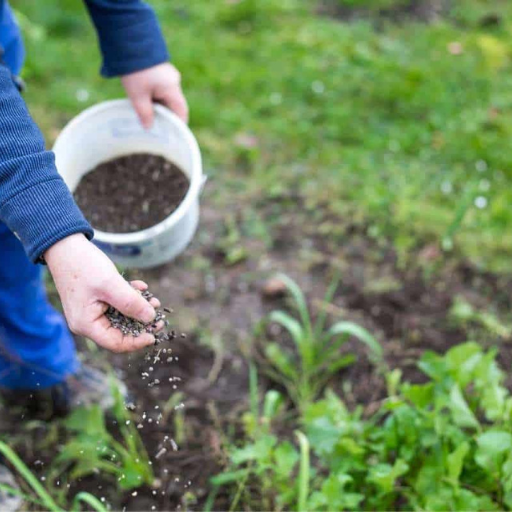
Blood Meal: A Nitrogen-Rich Fertilizer
Often referred to as the most potent and fast-acting organic sources of nitrogen, blood meal is derived from dried and ground blood of slaughtered animals; mostly from cattle. This fertilizer is particularly good for leafy vegetables because it contains high levels of nitrogen ranging between 12% and 15%. Blood meal, when you apply it to soil, breaks down quickly releasing instant nitrogen to plants. It also serves as a soil amendment which helps in balancing the soil by providing the missing micro-nutrient in the soils that contain less nitrogen. Moreover, blood meal has repellent effects on animals like deer and rabbit hence protecting young plants. The recommended use of blood meal should be moderate because over-application can cause nutrient imbalances leading to possible plant damage.
Feather Meal: The Slow-Release Answer
It is a reliable organic nitrogen fertilizer that is known for its slow-release attributes with feather meal being derived from processed feathers especially those from poultry weighing about twelve (12) to thirteen (13) percent of their total weight. Feather meals decomposes slowly in soil unlike other sources of nitrogen and therefore beneficial for supplying plants with unvarying sources of this element throughout a longer duration under cultivation. Since they prefer long term nutrient availability such as tomatoes, squash and peppers, these crops require uniform normal growths during season through slow release supporting steady healthy development. Additionally, incorporation of feather meal into growing media enhances aeration and structure of such soils. So, this approach will help you achieve optimum results if coupled with proper incorporation prior planting feather meal into the soil as well as balanced fertilization program giving comprehensive nutrients coverage.
Fish Emulsion: Liquid Manure Perks
Fish emulsion is an extremely effective organic fertilizer produced by processing fish waste products. It enriches the soil with essential nutrients such as potassium, phosphorus and nitrates thus promoting quick plant growth rates and better root development. In addition to being in a liquid form, it is quickly absorbed by plants making it very suitable for early growth stages of a plant. Other than that, this fertilizer also contains some trace elements and beneficial bacteria promoting structure and fertility of the soil. Also, fish emulsion proves to be a versatile fertilizer which can be used on different types of plantation including vegetables, flowers and shrubs among others. It is therefore seen as one of the preferred options by organic farmers for better yields through increased harvests as well as vibrant blooms over time when applied regularly.
How to Apply Organic Nitrogen Fertilizers?
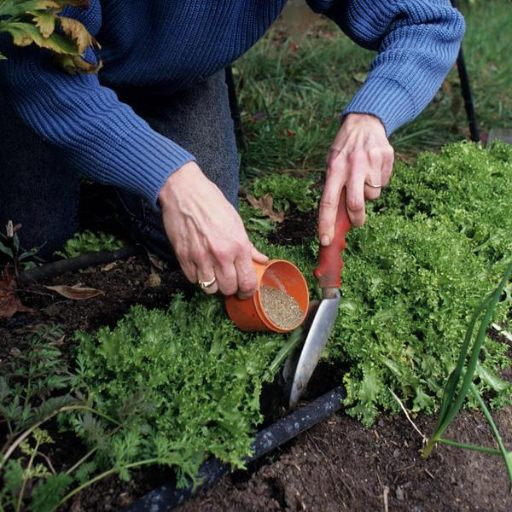
Picking the Right Method of Application
Think about your plant’s specific requirements and the type of fertilizer when deciding on the right application method for organic nitrogen fertilizers. For feather meal, it is best to mix it into the soil before planting so that there will be a slow release of its nitrogen content. Simply combine it with soil on topmost part by an inch or two. On the other hand, fish emulsion should be diluted in water based on instructions given and used as foliar spray or soil drenching for quick nutrient absorption. In addition, side-dressing during growing season can provide supplementary nutrition to plants whenever required. To avoid over-fertilization, always refer to manufacturer guidelines as regards dosages and frequency of use.
Determining How Much Organic Nitrogen Fertilizer to Use
When determining how much organic nitrogen fertilizer to use, here are some things you need to do. The first thing is taking a test for your soils so that you know what nutrients they lack and their levels at present too. This will mean that the kind of fertilizer applied depends on what is needed in your garden specifically. As a rule of thumb, apply almost 1-2 pounds nitrogen per 1000 square feet of garden space. In this particular area four pounds feather meal ought to be used while applying such a product. If using fish emulsion one tablespoon should be diluted with one gallon water every three to four weeks from spring through autumn. Always follow instructions provided by manufacturers especially regarding amounts and application rates since excessive application is not only injurious but also risky for plants.
Timing Your Fertilizer Applications
For optimum healthiness and productivity of plants, timing your fertilizer applications is very vital step to make in farming practices . Apply organic nitrogen fertilizers in early spring when crops begin active growth cycles first time round. At this point additional supply would assist breakage dormancy stage because nutrients are slumbering in them. During the growing season, plan for additional applications based on the specific fertilizer type:
- Feather Meal: Apply feather meal once at planting time, then follow with a mid-season application about 2-3 months later to sustain the soil’s nitrogen levels.
- Fish Emulsion: Use fish emulsion every 3 to 4 weeks throughout the growing season. It’s particularly beneficial during periods of active growth and fruiting.
By getting the timing right for your fertilizer applications you ensure that there is always supply of nutrients for healthy growth of plants. Over-fertilization can also be avoided by following specific product directions.
Best Practices for Using Organic Nitrogen Fertilizers
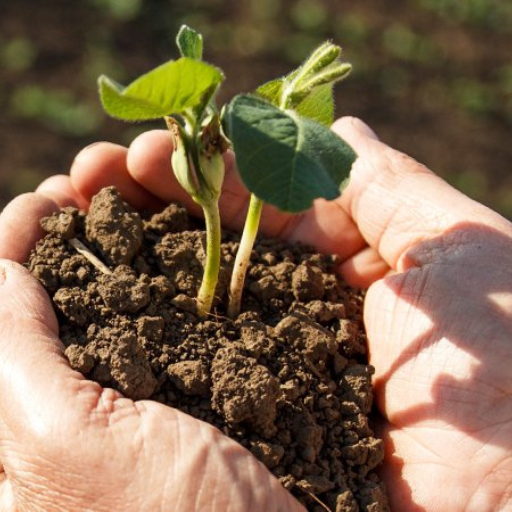
Soil Nitrogen Monitoring
Testing soil nitrogen levels is necessary for optimal growth of plants in terms of giving them adequate nutrients. At my garden, I often use soil test kits to determine the amount of nitrogen it contains. It is important to examine the earth at the onset of growing season and thereafter during different intervals to easily detect any changes. This allows me alter fertilizer applications appropriately so that my plants are neither starved nor become too much fertilized. Therefore, by following these levels constantly one can retain soil health while increasing productivity of crops thereby leading to a more abundant harvest.
Balancing Nitrogen with Other Nutrients
To balance nitrogen with other nutrients, it is necessary to consider overall soil health. Without phosphorus, potassium, and trace elements in moderate amounts alongside nitrogen’s involvement; plants will not grow fully as expected. Consequently, I utilize different organic manures just to ensure that this condition prevails on my soils always. Rich in phosphorus for root development and flowering purposes are bone meal among other types while kelp meal provides an overall plant support system coupled with resistance against diseases due its source from potassium element as well. In addition to this practice, I sometimes spread compost over my garden where I obtain apart from improving soil structure various kinds of nutrition making it easier for all nutrients provided therein be taken in efficiently. By testing the soils regularly I can follow up on nutrient levels such as those above and thus reasonable decisions when managing my farm.
Preventing Over-Fertilization
Over-fertilizing prevention involves regular observing plus wise application of fertilizers onto soils which enhances their fertility potentials but also causes ecological pollution especially water systems nearby or entering into another organophosphates cycles through vegetables grown hereby leading sickness even death at times because some chemical compounds like DDT persist longer inside our bodies than animal life if used excessively. For instance, I never apply more than what is instructed on fertilizer pack whenever applying it since there are certain rules that should be observed. In addition my fertilizers are slow release ones to ensure that there is no nutrient burn which results out of dumping in a large amount of nutrients at once. Moreover, soil analysis is very important for knowing the fertilizer level in my garden and acting according to it. While applying manure, I take into account the requirements of each plant, stage of their growth and also how my land looks like. Furthermore, I usually mix organic matter such as compost with the soil which releases them slowly hence keeping more balance in terms of nutrients provided to crops. Such activities help me avoid adding too much fertilizer and thus make sure that a farm is always productive and healthy.
Frequently Asked Questions (FAQs)
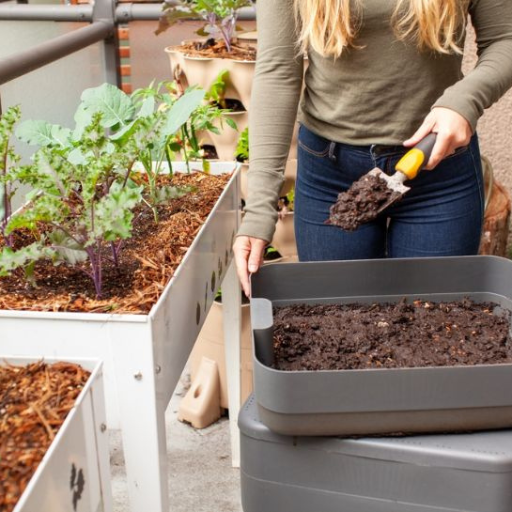
Q: Can I use this fertilizer on my lawn and shrubs?
A: Yes, the 13-0-0 high nitrogen organic fertilizer is versatile and can be used on lawns, shrubs, and other vegetative plants to encourage lush, green growth.
Q: What is the primary source of nitrogen in the 13-0-0 fertilizer?
A: The chief component of nitrogen in fertilizers like these usually comes from feather meal or meat meal. These materials are derived from plants and full of natural proteins that ensure slow release of nitrogen over time.
Q: Are there any specific brands that offer this type of garden fertilizer?
A: Yes, brands such as Espoma, Fox Farm and Dr. Earth are some examples of companies with quality organic fertilizers high in nitrogen similar to the 13-0-0 formulation. Their products are basically aimed at promoting sustainable farming practices using naturally occurring nutrients.
Q: How does the 13-0-0 fertilizer compare to liquid fertilizers?
A: The slow release nitrogen based 13-0-0 Fertilizer differs significantly from liquid ones like fish emulsion which provide a quick supply of nutrients for use by crops. Each however has its own advantages; while liquid fertilsers provide immediate nutrient availability, slow release fertilsers guarantee steady nutrient delivery over a long period.
Q: Is the 13-0-0 fertilizer considered a water soluble fertilizer?
A : No it is not a water soluable one because it is intended for slow release unlike water soluble fertilisers which dissolve quickly and therefore need regular applications.
Q: Why do plants need nitrogen and how does it aid in their growth?
A:Because so much protein synthesis occurs during photosynthesis. Photographsynthesis nis neceassry for growing of plants.This role helps improve health,vigour an productivity in vegepative plants.






